Applying compact powder is a simple yet essential step in achieving a polished makeup look. This versatile product helps set your foundation, reduce shine, and provide a smooth, matte finish to your skin.
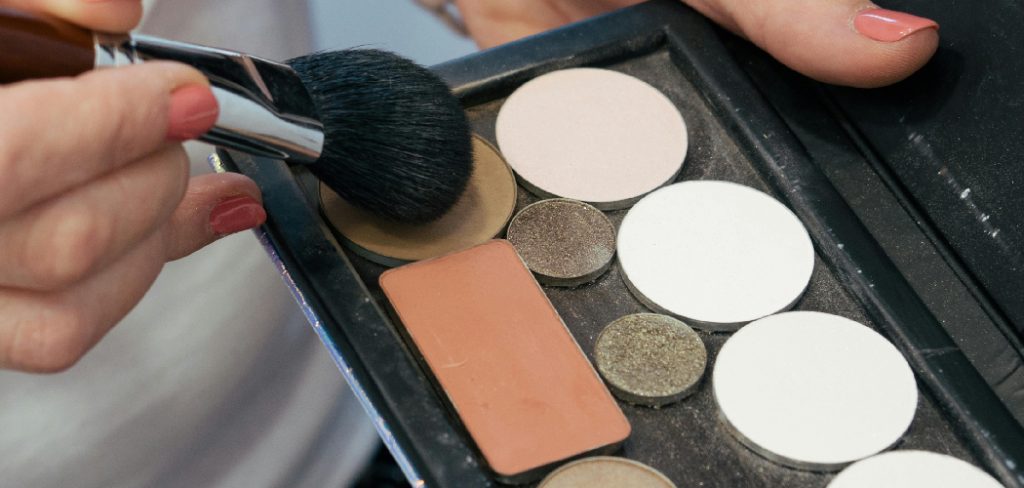
Whether you’re heading out for a casual day or an elegant evening, mastering the proper technique for applying compact powder can elevate your overall appearance and ensure your makeup lasts longer in this article on how to apply compact powder.
Why Use Compact Powder?
Before we dive into the steps of applying compact powder, let’s explore the benefits of using this makeup product.
Sets Foundation:
Compact powder helps set your foundation, making it last longer and preventing it from creasing or smudging throughout the day. This is especially helpful for those with oily or combination skin types.
Reduces Shine:
If you have oily skin, the compact powder can be your best friend. It helps absorb excess oil and mattifies the skin, giving it a smooth, shine-free finish.
Blurs Imperfections:
The compact powder acts as a light coverage foundation and can help blur any imperfections on the skin, such as dark spots or blemishes. It also gives an overall even tone to the complexion.
8 Steps on How to Apply Compact Powder
Step 1: Prep Your Skin
Before applying compact powder, it’s crucial to create a smooth and clean canvas. Start by cleansing your face thoroughly to remove any dirt, oil, or impurities. Follow up with a lightweight moisturizer to keep your skin hydrated and prevent the powder from looking cakey or patchy.
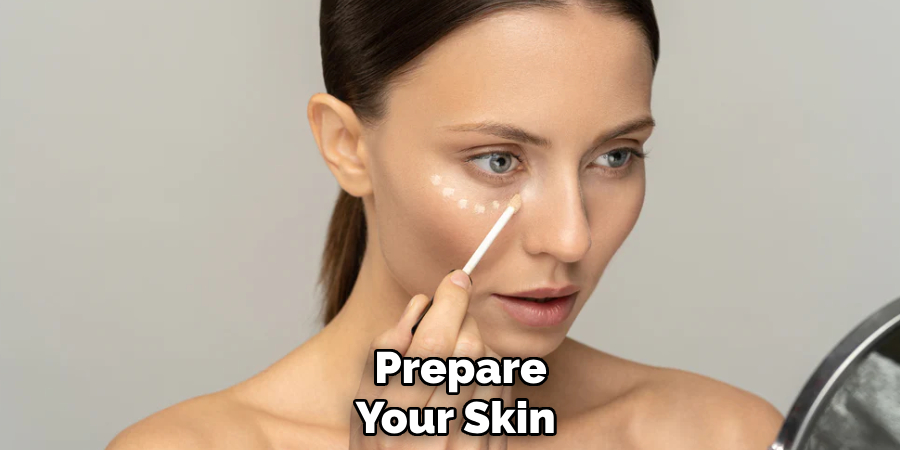
If you’re planning to wear makeup for an extended period, use a primer to ensure a flawless and long-lasting base. Prepping your skin properly sets the stage for an even application of compact powder and enhances its effectiveness.
Step 2: Choose the Right Shade
Selecting the correct shade of compact powder is essential for achieving a natural and seamless look. Begin by identifying your skin’s undertone—whether it’s warm, cool, or neutral. Test a few shades on your jawline rather than your wrist for a more accurate match.
The right compact powder should blend effortlessly into your skin without appearing too light or too dark. Always check the shade in natural lighting to ensure it complements your complexion perfectly. Choosing the right shade not only enhances your makeup but also avoids a mismatched or unnatural finish.
Step 3: Pick the Right Tool
When it comes to applying compact powder, you have a few options for tools – a brush, sponge or puff. A brush will provide more natural coverage and is ideal for touch-ups throughout the day. Sponges and puffs can give a fuller coverage, making them suitable for initial application.
Whichever tool you choose, make sure it’s clean to avoid any bacteria buildup on your skin.
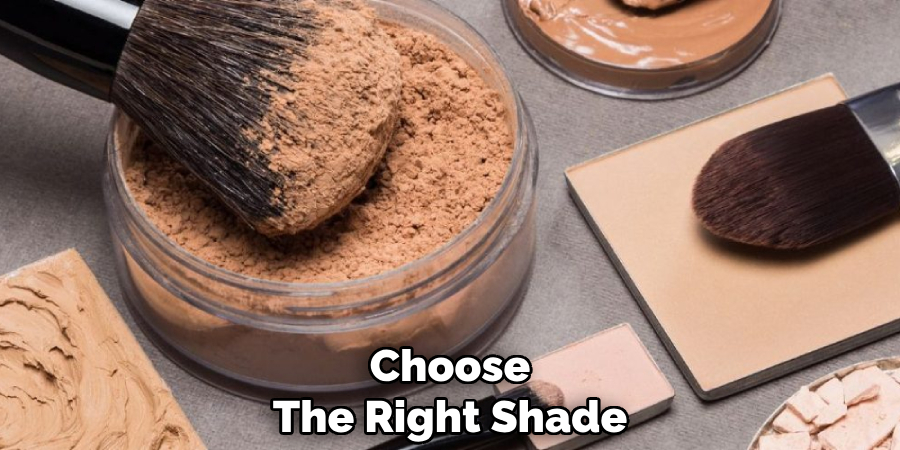
Step 4: Load Your Brush or Sponge
If using a brush, swirl it lightly in the compact powder and tap off any excess product. If using a sponge or puff, gently press into the powder and then pat it onto your skin. This method helps to pick up the powder evenly and avoid an overly concentrated application.
You can also use a tissue to lightly blot the compact powder and remove any excess before applying it to your face.
Step 5: Start at The Centre Point
Begin applying compact powder at the center of your face, typically the T-zone (forehead, nose, and chin). These areas tend to have more oil production, so starting here helps create a balanced coverage. Use light sweeping or pressing motions for an even distribution of the product.
The key to achieving a natural look is to build up the compact powder slowly, adding more product only where necessary.
Step 6: Move Outwards
Once you’ve covered the T-zone, gradually move outwards towards the edges of your face, such as your cheeks and jawline. Use gentle, sweeping motions or light dabbing depending on the tool you’re using. Ensure the powder is blended well to avoid harsh lines or uneven application.
Pay extra attention to blending the powder along your hairline and jawline for a seamless, natural finish that matches your skin tone. Moving outwards helps distribute the product evenly and creates a cohesive, polished look.
Step 7: Apply Under the Eyes
If you’re using compact powder to set your under-eye concealer, use a small brush or sponge to apply it gently. Be careful not to use too much product as it can settle into fine lines and creases, making them more noticeable. Lightly press the powder onto the skin for a smooth and natural-looking finish.
It’s best to use a separate powder specifically designed for the delicate under-eye area, as it will have more finely milled particles and provide better coverage.
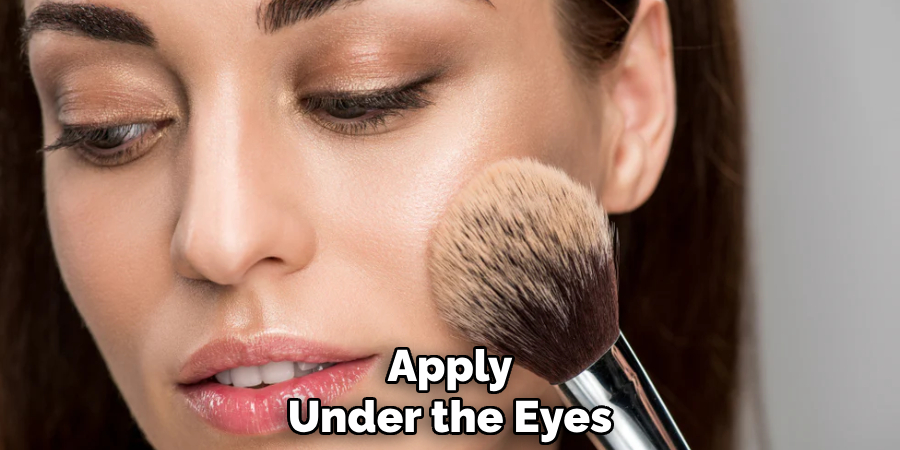
Step 8: Set with Setting Spray
Once you’ve applied the compact powder and blended it seamlessly, complete your makeup routine with a setting spray. Hold the spray about 8-10 inches away from your face and spritz lightly in an “X” and “T” motion to ensure even coverage. Setting spray helps lock in your makeup, including the compact powder, ensuring it stays in place all day while preventing it from looking cakey or dry.
This final step also gives your skin a natural, refreshed finish and adds longevity to your entire makeup look. Avoid touching your face until the spray has fully dried for the best results.
Following these steps on how to apply compact powder will help you achieve a flawless and long-lasting makeup look with compact powder. Remember, practice makes perfect, so take some time to experiment and find the best application technique for your skin type and desired coverage. Happy powdering!
How Much Will It Cost?
The cost of compact powder can vary depending on the brand, quality, and features offered. Drugstore brands typically range between $5 to $20, making them an affordable option for everyday use. Mid-range brands often cost between $20 to $50, offering better formulations, finer textures, or additional benefits like SPF or skincare ingredients. High-end luxury brands, however, can cost upward of $50, providing premium packaging, long-lasting wear, and innovative formulas.
When deciding how much to spend, consider your skin type, the frequency of use, and your personal makeup preferences. Investing in a higher-quality compact powder may be worth it for a more natural finish or longer-lasting coverage. Look out for sales or value sets to make the most of your budget while achieving a flawless look.
Frequently Asked Questions
Q: Can I Use Compact Powder on Its Own Without Any Foundation or Bb Cream?
A: Yes, compact powder can be used as a light coverage foundation on its own, especially for those with oily skin. However, if you want more coverage, it’s best to use a foundation or BB cream as your base before applying compact powder.
Q: How Often Do I Need to Touch Up My Compact Powder Throughout the Day?
A: It depends on your skin type and how much oil your skin produces. Generally, touching up once or twice a day is sufficient to keep your makeup looking fresh and matte. However, if you have very oily skin, you may need to touch up more frequently.
Q: Can I Use Compact Powder for Contouring?
A: Yes, compact powder can be used for contouring; however, it’s not the most effective product for this purpose. Using a contour-specific product with a matte finish will give you better results and a more defined contour.
Q: Can Compact Powder Be Used for Dry Skin?
A: Yes, compact powder can be used for dry skin; however, it’s essential to prep your skin well with moisturizer beforehand. Also, using a hydrating primer before applying compact powder can help prevent it from looking cakey or emphasizing dry patches on the skin.
Q: How Do I Choose the Right Shade of Compact Powder if I Have Very Fair or Dark Skin?
A: If you have very fair or dark skin, it can be challenging to find the right shade in traditional makeup brands. Look for brands that offer a wide range of shades or consider getting a custom blend done to match your skin tone perfectly. Alternatively, you can mix two different shades of compact powder to get the perfect match for your skin. Always remember to test and check the shade in natural lighting before purchasing to ensure it’s a good fit for your complexion.
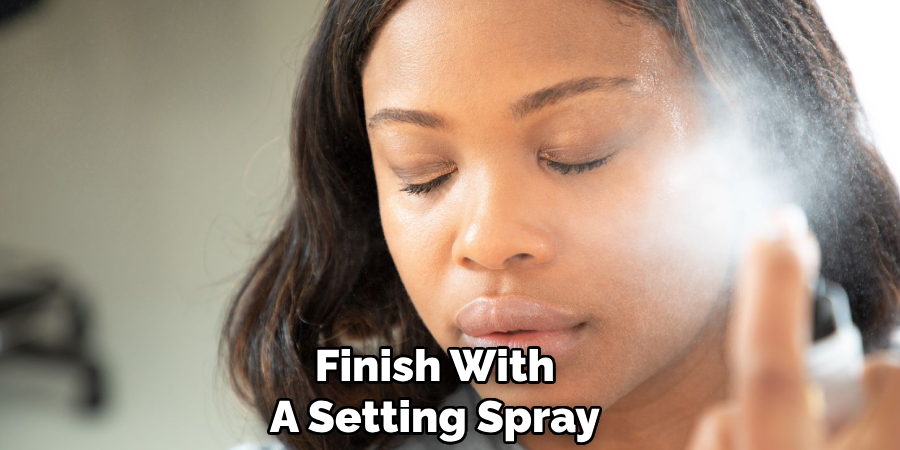
Conclusion
Compact powder is a versatile and essential product for achieving a polished and long-lasting makeup look. From setting your foundation and reducing shine to blurring imperfections, it plays a crucial role in enhancing your overall appearance.
By following the proper steps on how to apply compact powder for application, including prepping your skin, choosing the right tools, and blending seamlessly, you can ensure a flawless finish that complements your unique skin type and tone. With a little practice and attention to detail, compact powder can become your go-to solution for a smooth, even complexion every day. For a flawless finish, compact powder makeup is a must-have in your beauty routine, providing coverage and a smooth, matte look throughout the day.
About the Author
Jane Hubbard is a passionate beauty expert with a wealth of experience in makeup, hair, and overall beauty techniques. After years of working as a hairdresser specialist, she followed her entrepreneurial spirit and started her own consultancy business.
Jane has always been driven by her desire to help others feel confident in their own skin, and she does this by sharing her knowledge, experiences, and practical beauty tips. Through her consultancy, she empowers individuals to embrace their unique beauty, offering tailored guidance that boosts both self-esteem and personal style.
Professional Focus
- Specializes in makeup, hairstyling, and beauty consulting.
- Provides personalized beauty advice, tips, and techniques to help individuals feel confident in their appearance.
- Dedicated to staying up-to-date with the latest industry trends and developments.
- Passionate about creating a comfortable and empowering experience for every client.
Education History
- University of Craft and Design – Bachelor of Fine Arts (BFA) in Woodworking and Furniture Design
- Woodworking Apprenticeships – Extensive hands-on training with skilled craftsmen to refine carpentry and furniture making techniques
- Online Courses & Masterclasses – Continued education in advanced woodworking techniques, design principles, and specialized tools
Expertise:
- Makeup artistry, hairstyling, and beauty consulting.
- Personalized beauty techniques to enhance confidence and self-expression.
- Educating clients on how to maintain their beauty routines at home.
